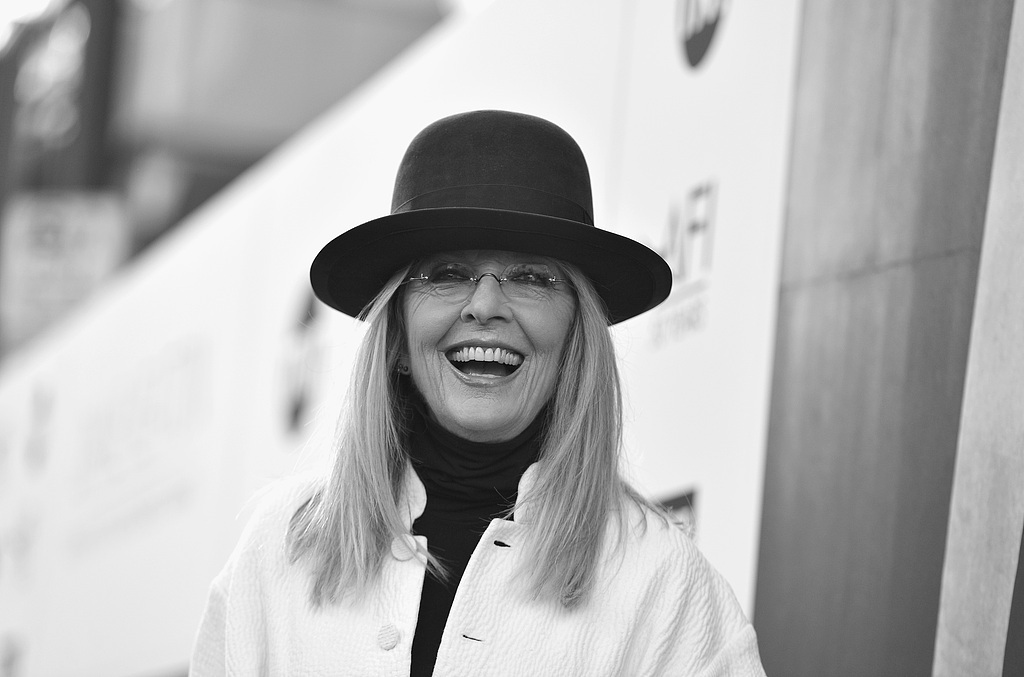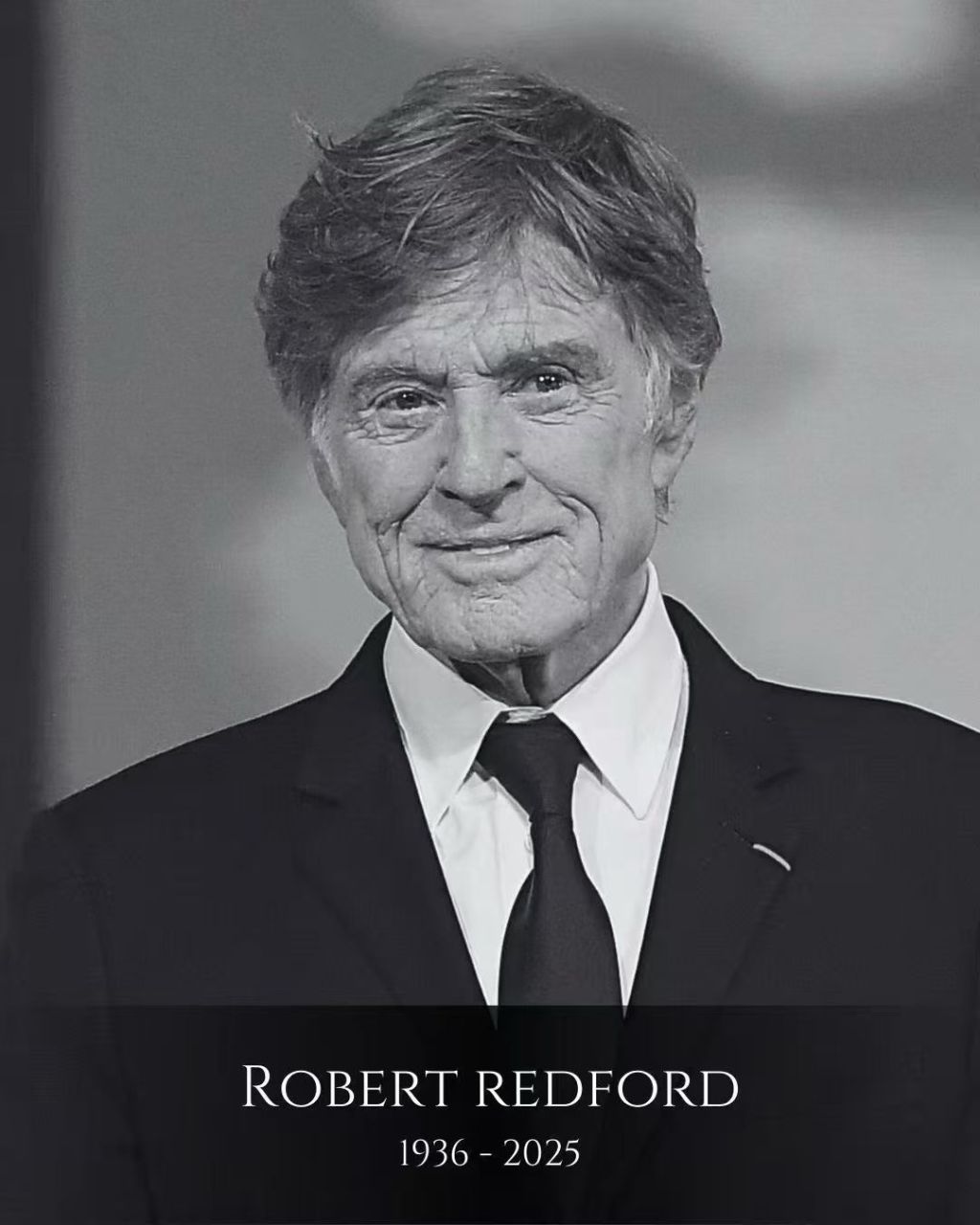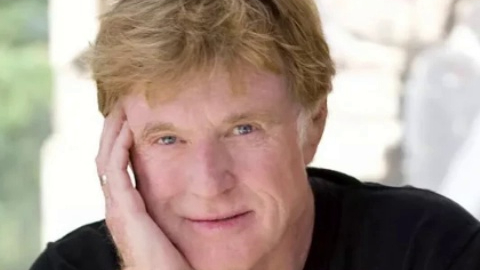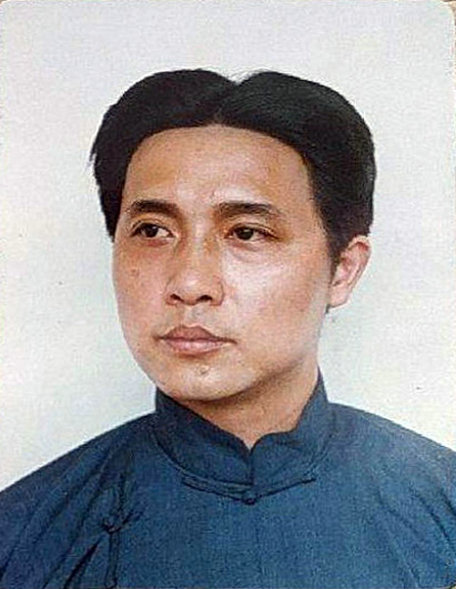
On August 26, the National Theatre of China announced the passing of Comrade Wang Ying, a member of the Communist Party of China, a renowned performing artist, a national first-class actor, and a member of various artistic associations, including the China Dramatists Association, the China Film Association, and the China Television Artists Association. Wang Ying, a retired cadre of the National Theatre of China, succumbed to illness on August 25, 2024, at 22:53 in Wuxi, at the age of 66. The farewell ceremony will be held on August 29 at 8:20 AM at the Wuxi Funeral Home.
As a distinguished character actor, Wang Ying gained fame for portraying the young Mao Zedong. Through this brilliant image on both screen and television, he won several prestigious awards, including the Excellent Male Actor Award at the 8th China Film Huabiao Awards for the film "Mao Zedong in 1925," the Best Supporting Actor Award at the 26th China Film Golden Rooster Awards for "My Long March," and the Audience's Favorite Actor Award at the 25th China Television Golden Eagle Awards for the revolutionary drama "Red Cradle."
Wang Ying once remarked, "Currently, many depictions of great figures are overly formulaic, which makes them seem one-dimensional and weak. Some can even be considered mere documentaries rather than artistic works. Before we create, especially when portraying great individuals, we should do our homework seriously."

A promotional photo for "Opening the Heavens" (1991)
He looks just like him! It's as if he walked out of the oil painting "Mao Zedong Goes to Anyuan."
Wang Ying (pronounced yīng) was originally from Shandong and was born in Hangzhou, Zhejiang, in 1957. At the age of 12, he was admitted to the Zhejiang Provincial Arts School to study ballet. A year later, thanks to his excellent vocal ability, he was selected by a Yue Opera reform troupe (the predecessor of the Zhejiang Yue Opera Troupe) to become a Yue Opera actor, focusing on the character's role. However, fate had other plans; as an adult, he suddenly grew to a height of 1.79 meters. While this is considered an ideal height for a handsome man, it made it difficult for him to find a female co-actor in Yue Opera. Wang Ying found himself in a predicament, struggling to find roles.
With some guidance, Wang Ying made a significant shift in his acting career. In 1980, he was accepted into the performance training class at the Central Academy of Drama, and two years later, he was assigned to the Central Experimental Theatre to transition into drama (in 2001, the China Youth Art Theatre and the Central Experimental Theatre merged to form the National Theatre of China). In the 1980s, in addition to stage performances, he took on roles in several films and television dramas, such as "Tao Xingzhi," "Three Words and Two Bumps," and "Strange Stories from a Chinese Studio," but none garnered significant attention.
Wang Ying's first connection with the image of Mao Zedong was also through the drama stage. In 1988, the Shanghai Dramatic Arts Center staged the play "Westward Journey," marking his first portrayal of Chairman Mao on stage. Soon after, in 1989, the Shanghai Film Studio began production of a commemorative film for the 70th anniversary of the founding of the Communist Party, titled "Opening the Heavens." This was the first Chinese film to be set against the backdrop of the party's founding in 1921 and the first to present the young Mao Zedong on the big screen.
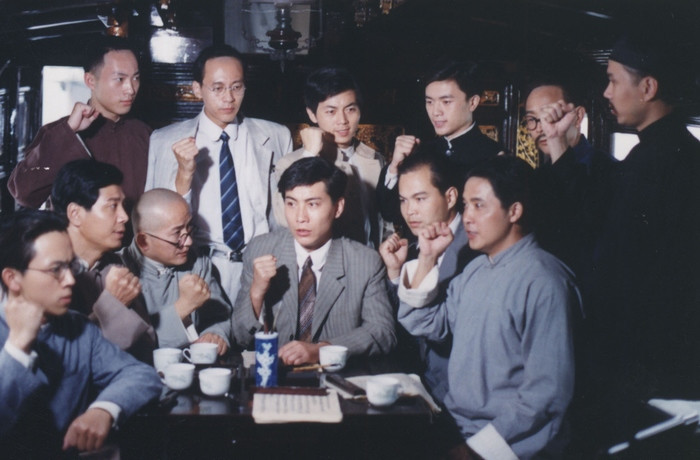
A still from "Opening the Heavens"
Given the importance of the matter, it deserves careful consideration. To be fair, among the major patriotic films of the 1980s, Gu Yue's portrayal of Mao Zedong left a deep impression on people’s hearts. However, at that time, Gu Yue was already over fifty, and it was exceedingly challenging for him to portray a Mao Zedong in his twenties. The film studio conducted a nationwide audition among various theater companies and studios. According to Wang Ying's later recollections, during the initial preparation phase, there were as many as 21 candidates for the role of "Young Mao Zedong." After several rounds of auditions, the director's team initially intended for the role to go to Wu Gang, a young actor from the Beijing People's Art Theatre.
Before filming began, while the crew went to Beijing to sign contracts with the actors, assistant director Hu Lide casually browsed through the actor archives of the Central Experimental Theatre, where Wang Ying's photo caught his eye. Following the principle of "the most resembling should take the role," Wang Ying was invited to the Shanghai Film Studio for a costume test just a few days later. "At that time, the makeup process alone took over three hours. Young Mao Zedong's forehead was relatively wide, while mine was narrow. The conventional method would be to shave off some hair from my forehead, but that wouldn't look smooth and would expose the scalp. So I gritted my teeth and endured the pain, allowing the stylist to pluck my forehead hair one by one with tweezers."
When Wang Ying walked out of the makeup room dressed in a traditional long gown, everyone present was stunned. Director Li Xiepu remarked at the time, "It looks just like him, too much like him! If you added an oil-paper umbrella, it would be like he walked out of the oil painting 'Mao Zedong Goes to Anyuan'." "Opening the Heavens" officially premiered in 1991 and received enormous acclaim. Wang Ying later expressed, "This film also marked my own 'opening the heavens' in my acting career."
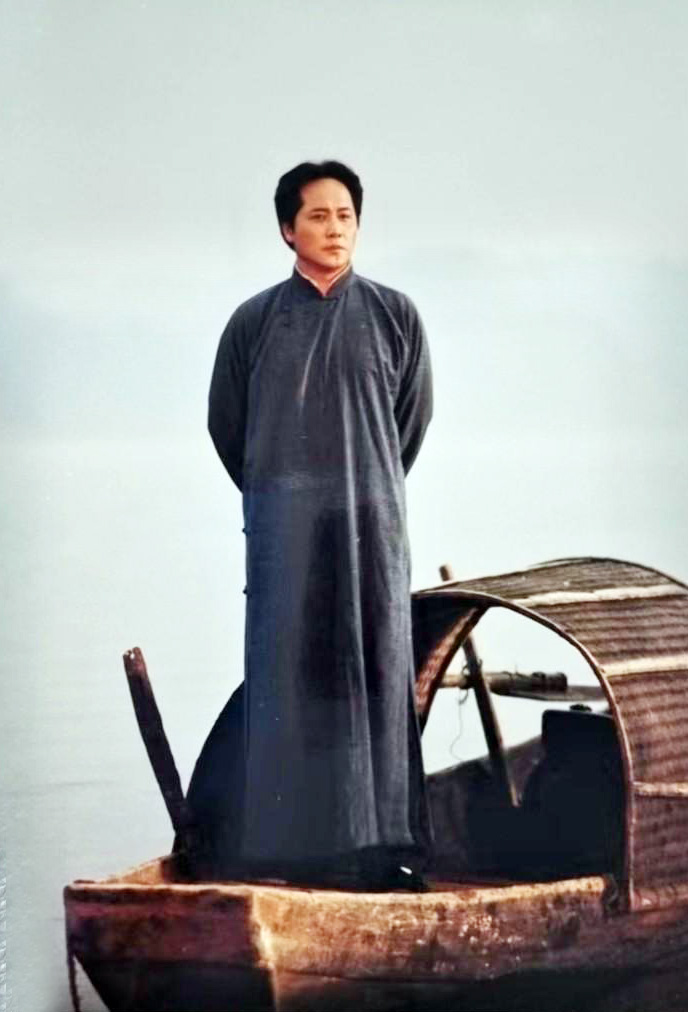
A still from "Mao Zedong in 1925" (2001)
Creating an authentic artistic portrayal of Young Mao Zedong had no precedents to reference. In addition to thoroughly studying the script, Wang Ying amassed a wealth of written and photographic materials for in-depth examination and creatively expressed himself based on his insights. He identified three characteristics of Mao Zedong: "never without a cigarette, never without spicy food, and never apart from books."
Taking the action of smoking as an example, "Initially, I didn't know how to smoke, but to portray the Chairman well, I needed to find that feeling and interviewed many comrades who had worked alongside him. When the Chairman smoked, he was accustomed to pinching the cigarette between his index and middle fingers, or sometimes between his middle and ring fingers. While talking to someone, he would extinguish the half-smoked cigarette and put it in his pocket, then light it up again to continue. This habit stemmed from his tendency towards frugality; he despised waste. Therefore, I also devised a move in which, as the smoke was close to burning out, I carefully pinched the cigarette with my thumb and index finger to avoid wasting the long stub,” Wang Ying shared.
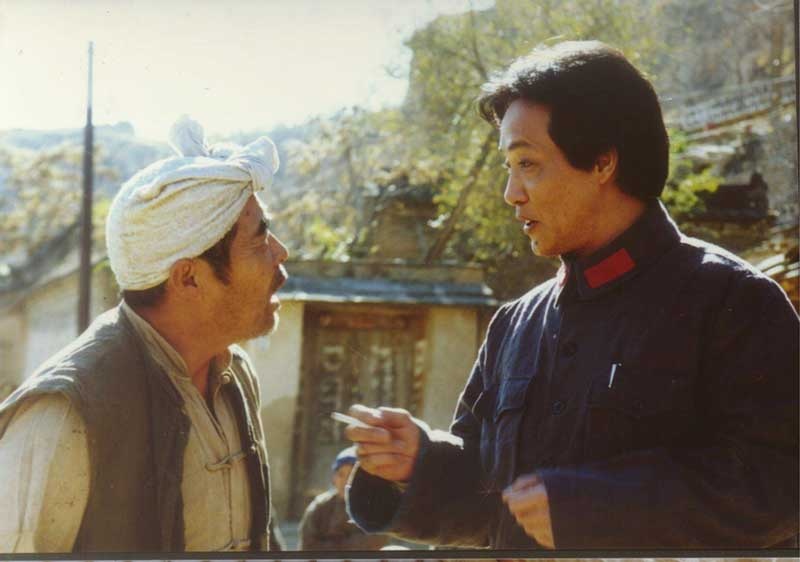
A still from "Mao Zedong and Snow" (2001)
Reporting to Chairman Mao, "It is both pressure and motivation for myself."
Before the official start of filming "Opening the Heavens," Wang Ying requested five days off to trace Mao Zedong's footsteps in Hunan, visiting places like Hunan First Normal University, Orange Island, the site of the New People’s Study Society, and Yang Kaihui's hometown in Bancang… His final stop was Mao Zedong's birthplace in Shaoshan. This routine would later become customary for him before assuming the role of Mao Zedong in any film or television series. For him, it was not superstition, but rather a reverence and admiration for the Chairman. "This belief is noble. I feel as if I have reported to Chairman Mao, and I must perform well. This is both pressure and motivation for myself."
In Shaoshan, Wang Ying stayed in the same guesthouse room that Mao Zedong had once occupied, visited Mao Zedong's former residence and the Mao family ancestral hall, and interviewed Mao Zedong's cousin, Mao Zeliang. In front of the joint burial site of Mao Zedong’s parents, he respectfully kowtowed three times to the elderly couple, which brought tears to the eyes of a nearby local, Tang Ruiren. “I remember the old man knelt down too, softly saying in Shaoshan dialect, ‘Grandpa, Grandma, Runzhi is here to see you…’”
The spontaneous love for Chairman Mao among the people continually inspired Wang Ying. He once stated that portraying Mao Zedong also infused him with a sense of righteousness. "In the era of the internet, everyone can take photos and videos with their phones, and public figures should be particularly cautious in their words and actions. But whether I’m at the airport or a train station, if I see injustice, I always stand up to speak out and take action.”
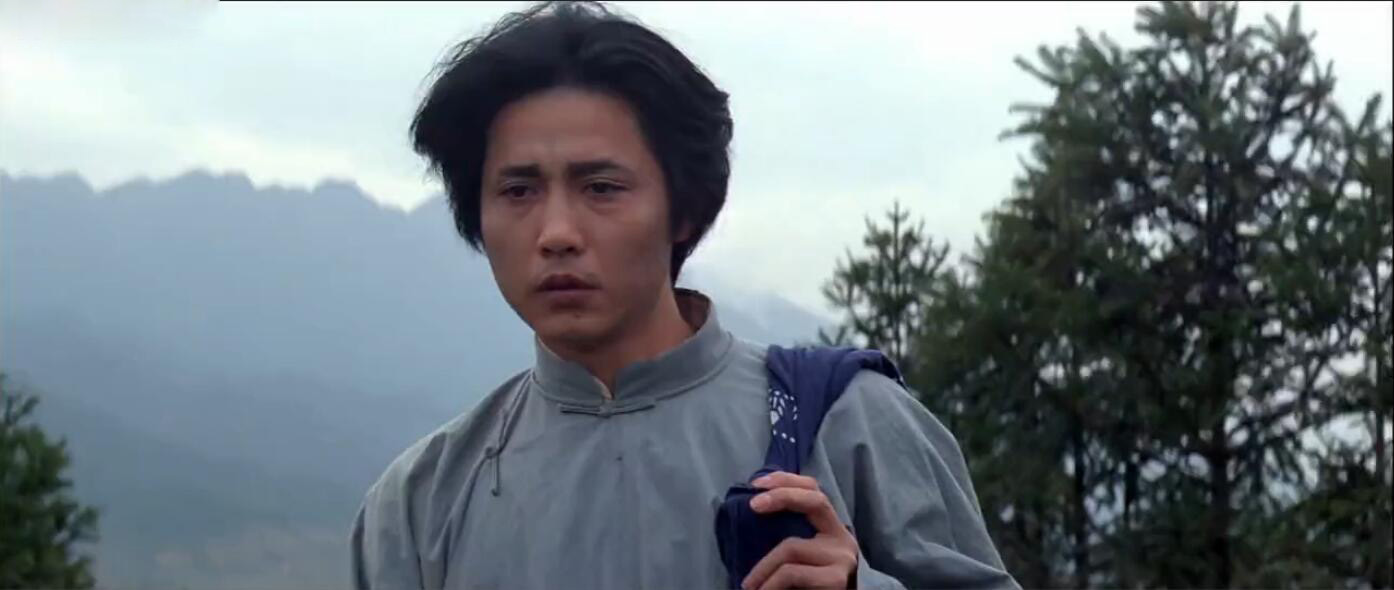
A still from "Autumn Harvest Uprising" (1993)
The performance in "Opening the Heavens" propelled Wang Ying to stardom, with numerous film offers pouring in, including "Autumn Harvest Uprising," "Yang Kaihui," and "Mao Zedong in 1925." During the filming of "Autumn Harvest Uprising," Wang Ying faced one significant challenge: Mao Zedong was depicted as disheveled, emaciated, and limping, often requiring a cane in most scenes. Would this detract from the leader's image? Wang Ying initially had some reservations.
However, after thoroughly researching the history surrounding the Autumn Harvest Uprising, he experienced an epiphany: this is history; Mao Zedong had walked through that difficult past step by step. Only by staying true to history could he present a genuine "Mao Zedong" to the audience. Thus, he focused on portraying Mao Zedong's unwavering will, indomitable faith, and spirit of independent thinking and following his path, revealing a striking charm in the character of "Mao Zedong." General Zhang Zhen, who had followed the Chairman in the revolutionary efforts during the Jinggangshan period, praised the film after watching it, saying, "Well played, looks just like him! The Mao Zedong I saw back then looked just like this."
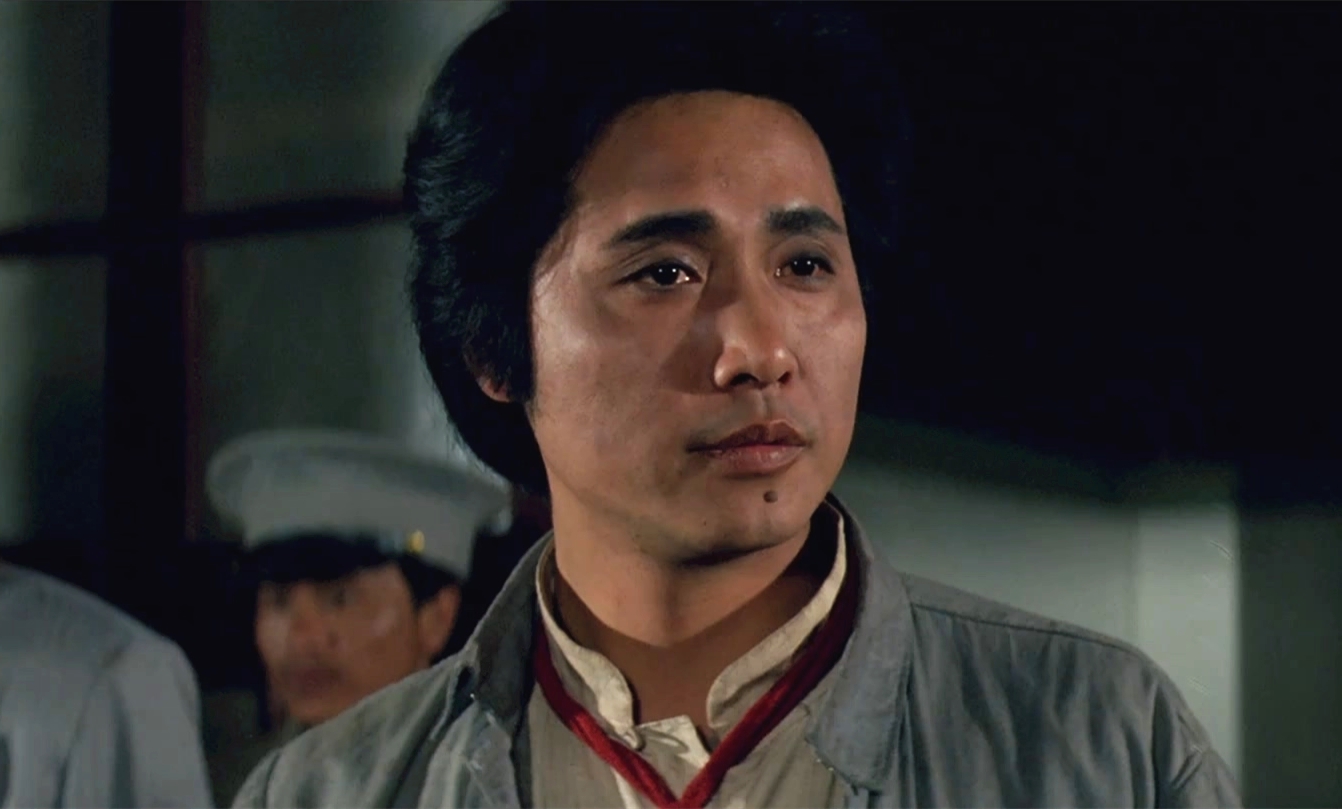
A still from "Autumn Harvest Uprising"
Having established a profound connection with the great leader, Wang Ying also aimed to present Mao Zedong as an ordinary person in "Autumn Harvest Uprising." One poignant scene depicts Mao Zedong leaving Bancang to participate in the Autumn Harvest Uprising. Traditionally, before his departures, his wife would wash his feet. This time, however, Mao Zedong suddenly insisted on washing Yang Kaihui's feet. Initially reluctant, Yang Kaihui eventually relented, and Mao Zedong insisted: "No, it must be done!" In this moment, Wang Ying's eyes conveyed a complex mix of emotions: love, the bittersweet sorrow of separation between husband and wife, hopes and concerns for the future, and the sadness of farewell… all communicated without words.
In real life, Wang Ying's wife, He Yalin, is a national一级舞美设计师 and senior makeup artist, both of whom work at the National Theatre of China. The two met during the filming of "Mao Zedong in 1925" in 2001, and since then, they have supported each other. After the turn of the century, whenever Wang Ying portrayed Mao Zedong, his wife took on the role of his makeup artist. He once emotionally mentioned, "All the award-winning films I've been in were made with her makeup."
